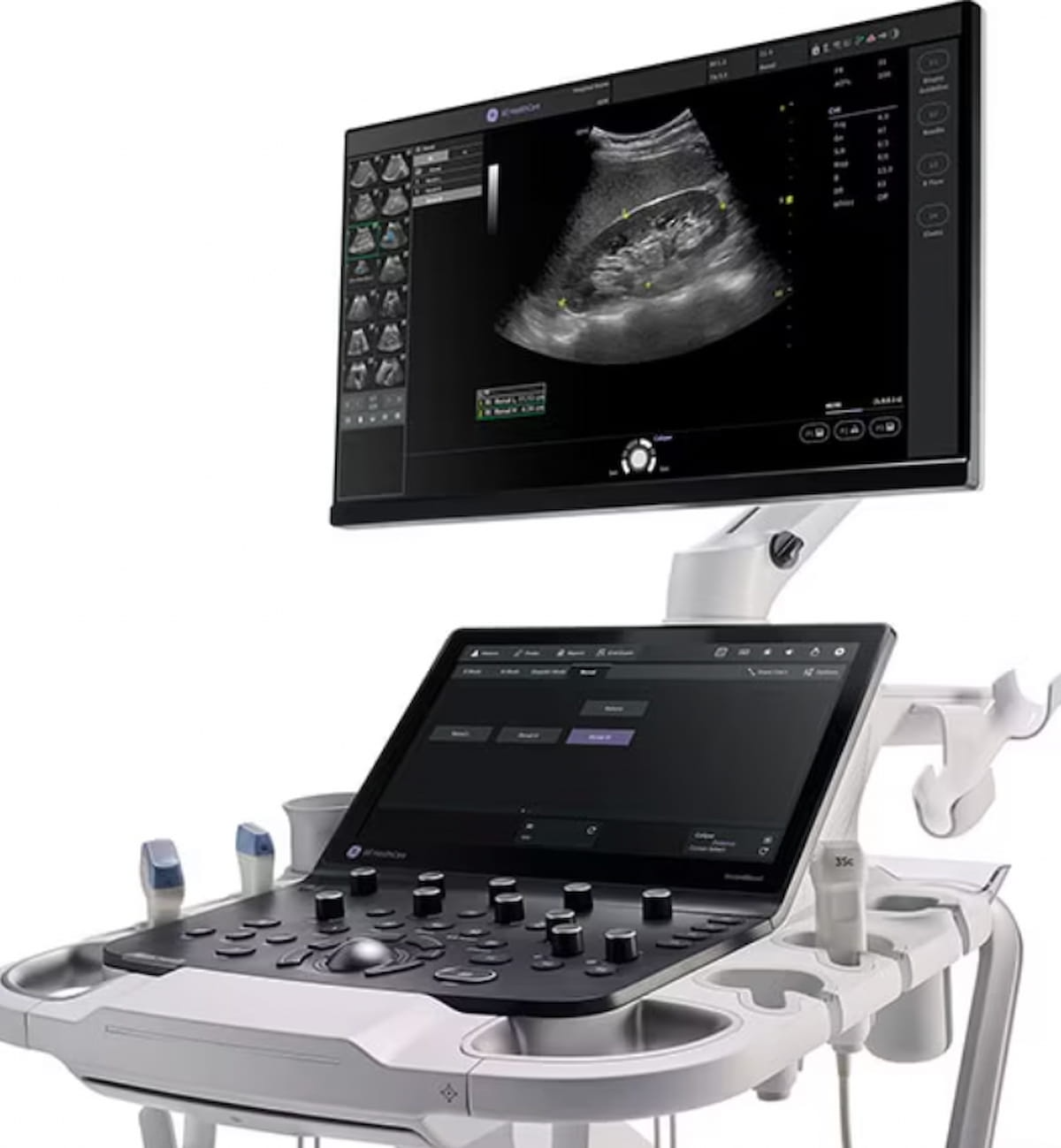GE HealthCare Launches Multi-Purpose Versana Premier Ultrasound
The new ultrasound platform reportedly offers a combination of enhanced imaging and AI-enabled tools to facilitate improved workflow efficiency.
The emerging artificial intelligence (AI)-enabled ultrasound system Versana Premier may promote improved imaging and efficiency across a variety of clinical settings.
In addition to fostering up to a 38 percent improvement in workflow efficiency, the Versana Premier ultrasound offers Whizz technology that offers real-time image optimization, according to GE HealthCare, the manufacturer of Versana Premier.
The newly launched Versana Premier ultrasound device reportedly offers automated labeling for transabdominal ultrasound views and provides 3D/4D capabilities for capturing fetal development, according to GE HealthCare, the manufacturer of Versana Premier. (Image courtesy of GE HealthCare.)

The company noted the FDA-cleared ultrasound device also provides AI-powered automated labeling for transabdominal ultrasound views as well as volume calculations. For OBGYN imaging, GE HealthCare said the Versana Premier features Whizz RenderLive and V-Live 2.0 enable clinicians to obtain 3D and 4D imaging of fetal development.
“Versana Premier is remarkably user-friendly and image quality in B-Mode is easy to optimize, making it possible to create amazing images," said Martin Altersberger, M.D., the director of the Echo Laboratory at State Hospital Steyr in Steyr, Austria. "The ultrasound system integrates advanced functions with optimized image quality and educational resources, which can be used in various settings. It can, therefore, adequately support clinicians in a wide range of assessments and diagnoses.”
Newsletter
Stay at the forefront of radiology with the Diagnostic Imaging newsletter, delivering the latest news, clinical insights, and imaging advancements for today’s radiologists.
Stroke MRI Study Assesses Impact of Motion Artifacts Upon AI and Radiologist Lesion Detection
July 16th 2025Noting a 7.4 percent incidence of motion artifacts on brain MRI scans for suspected stroke patients, the authors of a new study found that motion artifacts can reduce radiologist and AI accuracy for detecting hemorrhagic lesions.